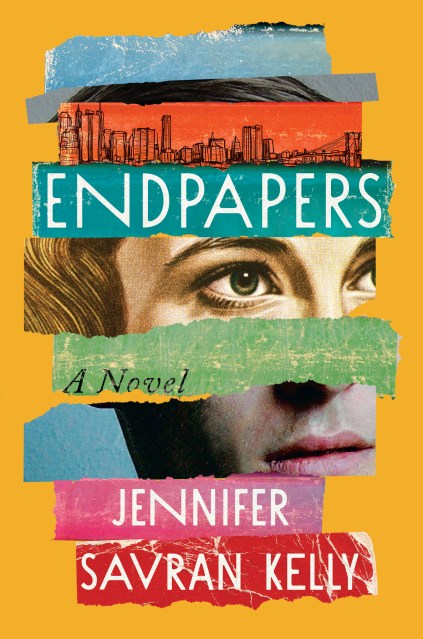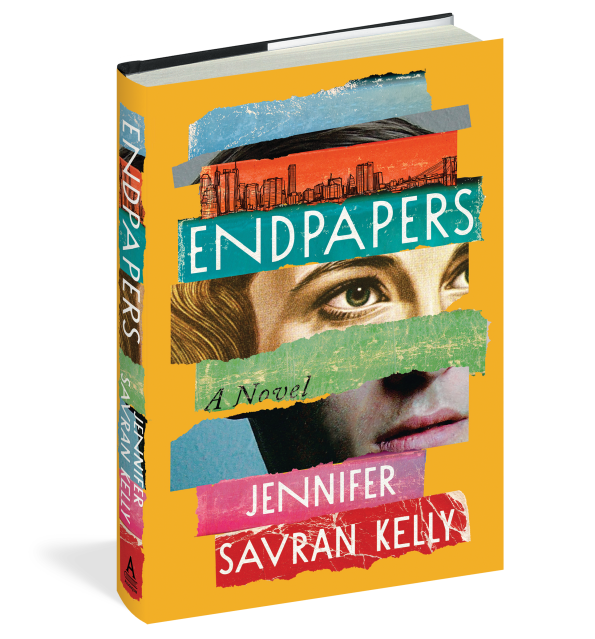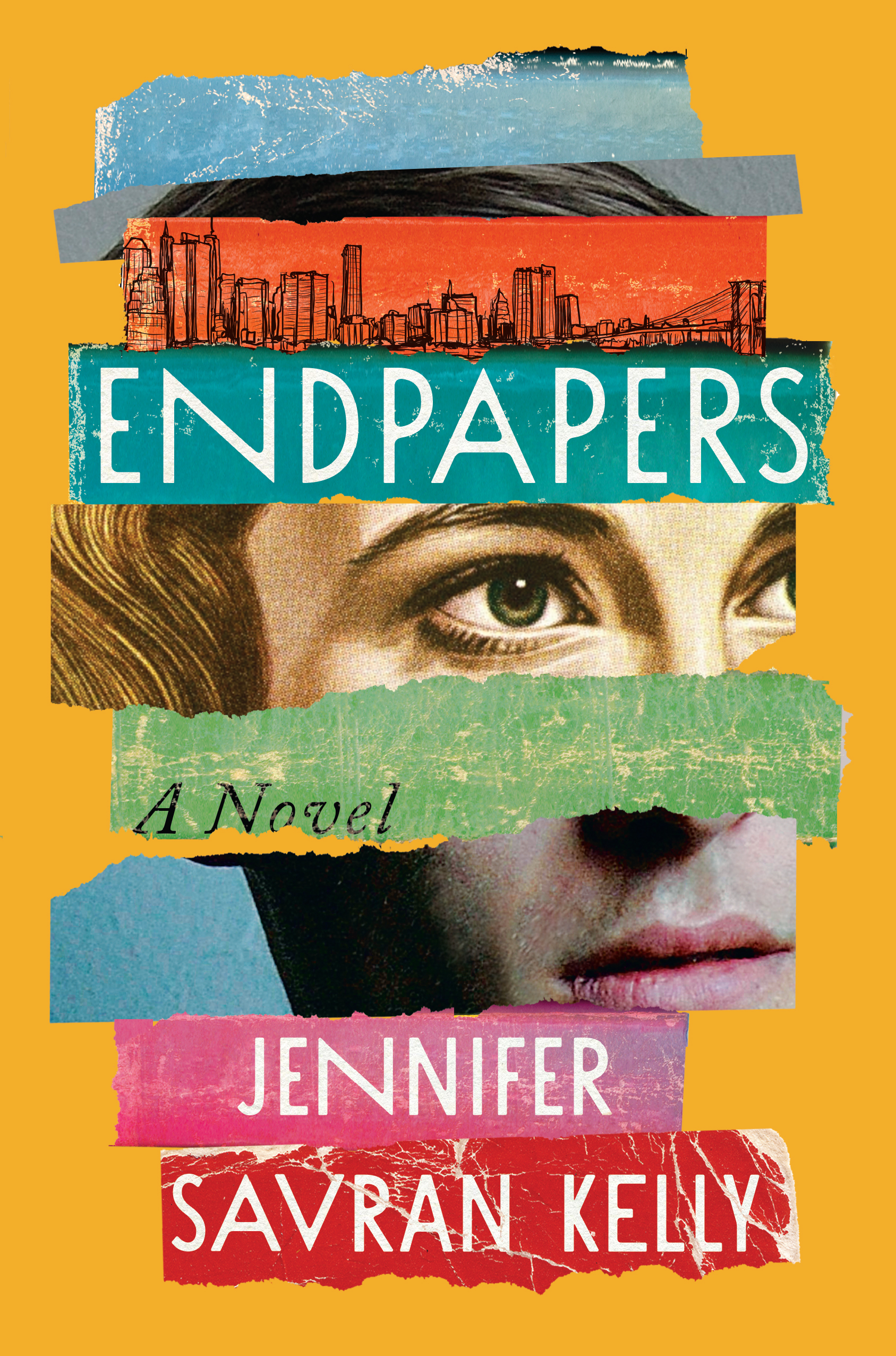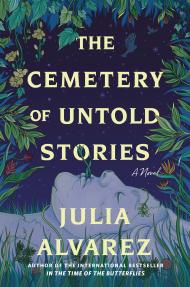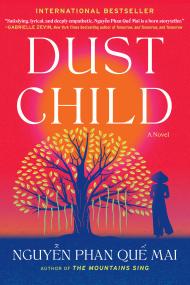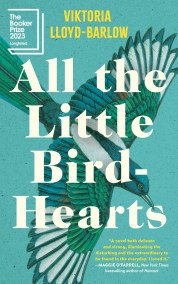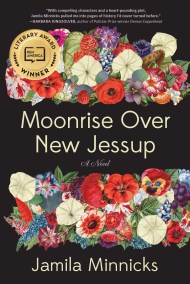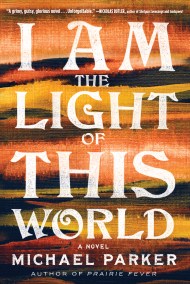Promotion
Use code MOM24 for 20% off site wide + free shipping over $45
Endpapers
A Novel
Contributors
Formats and Prices
Price
$27.00Price
$34.00 CADFormat
Format:
- Hardcover $27.00 $34.00 CAD
- ebook $1.99 $1.99 CAD
- Audiobook Download (Unabridged) $24.99
- Trade Paperback $18.99 $24.99 CAD
This item is a preorder. Your payment method will be charged immediately, and the product is expected to ship on or around February 7, 2023. This date is subject to change due to shipping delays beyond our control.
Also available from:
It's 2003,and artist Dawn Levit is stuck. A bookbinder who works at the Metropolitan Museum of Art, she spends all day repairing old books but hasn’t created anything of her own in years. What’s more, although she doesn’t have a word for it yet, Dawn is genderqueer, and with a partner who wishes she were a man and a society that wants her to be a woman, she’s struggling to feel safe expressing herself. Dawn spends her free time scouting the city’s street art, hoping to find the inspiration that will break her artistic block—and time is of the essence, because she’s making her major gallery debut in six weeks and doesn’t have anything to show yet.
One day at work, Dawn discovers something hidden under the endpapers of an old book: the torn-off cover of a lesbian pulp novel from the 1950s, with an illustration of a woman looking into a mirror and seeing a man’s face. Even more intriguing is the queer love letter written on the back. Dawn becomes obsessed with tracking down the author of the letter, convinced the mysterious writer can help her find her place in the world. Her fixation only increases when her best friend, Jae, is injured in a hate crime for which Dawn feels responsible. But ultimately for Dawn, the trickiest puzzle to solve is how she truly wants to live her life.
A sharply written, page-turning, and evocative debut, Endpapers is an unforgettable story about the journey toward authenticity and the hard conversations we owe ourselves in pursuit of a world where no one has to hide.
Genre:
-
“Sometimes the hardest thing to be is our authentic selves. How do we do that when society has hidden and erased any path that could show us the way? Dawn Levit finds that heroic path by believing in hunches and looking for clues. Not quite a mystery novel, this is a story of following one’s own inner desire for belonging through art and surprising friendships. Savran Kelly creates a story full of humans who we long to be friends with after the last page is read. Love is acceptance, and this book is that and more.”
—Amy Wallen, author of When We Were Ghouls
"Part portrait of the artist, part queer coming-of-age, and part investigative puzzle, this intimate, emotional novel parlays romance, passion, politics, and history into a compelling tale, beautifully and insightfully told. Jennifer Savran Kelly is an exciting, empathetic new voice.”
—J. Robert Lennon, author of Subdivision and Let Me Think
“Endpapers is a richly imagined and moving novel about identity, desire, and art. Its characters are believable and engaging, its plot intriguing, but just as important is its urgent subtext, a plea for humans to break free from constricting labels and instead behold each other in all their thorny, unpredictable individuality; to love complexity and uncertainty, rather than ideology and order. This just might be the most urgent issue of our time, and Endpapers tackles it with energy and—that most apropos weapon—subtlety.”
—Brian Hall, author of The Stone Loves the World
“Jennifer Savran Kelly’s Endpapers immerses us in the world and mind of her engaging but struggling narrator Dawn—genderqueer, Jewish, a book conservator on a desperate search for queer role models and an artistic community. Endpapers is about the need to be fully seen—to locate oneself in the past in order to feel visible in the present. Savran Kelly is a masterful and compassionate storyteller, one who finds hope in the antidotes to hate and violence: community, art, authentic self. This is a book for all of us!”
—Lori Ostlund, author of After the Parade
"A mystery wrapped in a love story wrapped in an artist’s coming of age, Endpapers is an ode to queer joy and the messiness of selfhood. With tenderness and insight, Jennifer Savran Kelly explores what we lose when we keep our innermost selves hidden—and what it means to forge an authentic life through art."
—Antonia Angress, author of Sirens Muses
“Jennifer Savran Kelly’s Endpapers is the most personal novel about life as a gender-nonconforming person that I’ve ever read. It opens a window into what it’s like to live in a world where you need to disguise who you are just to get along, and yet, at its heart, it remains an abundantly hopeful story. It's a story full of messy, true life. I’m so glad I read it.”
—Claire Oshetsky, author of Chouette
“Achingly evocative and thoroughly satisfying, Jennifer Savran Kelly’s Endpapers follows a genderqueer bookbinder through post-9/11 New York as she searches the city for answers about a long-hidden love letter and the outlines of her own identity. Part historical mystery, part meditation on the shifting nature of creativity and self, Endpapers is a story that bursts with warmth, community, and the sometimes-heartbreaking decisions we make when we begin to stitch together the spine of our lives."
—Katy Hays, author of The Cloisters
“Jennifer Savran Kelly’s Endpapers is an accomplished, moving novel where the search for answers to a literary mystery doubles as the search for queer authenticity in a world of bindings: book bindings, artistic bindings, social bindings. With humor, tenderness, and honesty, Savran Kelly lays bare the struggle to find our brilliant, beautiful selves—and the courage to go forth boldly with them.”
—Zak Salih, author of Let’s Get Back to the Party
-
“…the mystery of Gertrude and Marta converges beautifully with the art-work that Dawn begins to conceive. Kelly is a bookbinder and book production editor, and the novel’s details of book and print restoration ground and add depth to Dawn’s story.”BookPage
-
“A dizzying, intimate mystery, an exploration of how we become engrossed in the stories of others in order to tell ones of ourselves.”Electric Literature
-
“It’s thoughtful and nuanced and full of gender exploration we rarely get to see…”LGBTQ Reads
- On Sale
- Feb 7, 2023
- Page Count
- 336 pages
- Publisher
- Algonquin Books
- ISBN-13
- 9781643751849
Newsletter Signup
By clicking ‘Sign Up,’ I acknowledge that I have read and agree to Hachette Book Group’s Privacy Policy and Terms of Use
